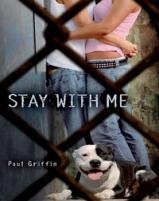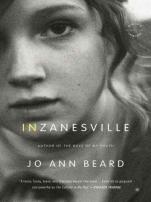Acid, Projects, and Pit Bulls: Fiction by Paul Griffin
 There are plenty of Young Adult books that portray the difficulties of being a teenager. Some are funny, some serious, and some are pretty dark. There's even a name for ones that focus on a specific issue -- the problem novel (you've got your teen pregnancy, drug abuse, suicide -- you name it). Some are great, but often times the more one topic takes center stage, the less realistic these books seem. It's never just one problem in real life, is it? For pretty much anyone at this age, times are hard all around. Paul Griffin writes about hard times.
There are plenty of Young Adult books that portray the difficulties of being a teenager. Some are funny, some serious, and some are pretty dark. There's even a name for ones that focus on a specific issue -- the problem novel (you've got your teen pregnancy, drug abuse, suicide -- you name it). Some are great, but often times the more one topic takes center stage, the less realistic these books seem. It's never just one problem in real life, is it? For pretty much anyone at this age, times are hard all around. Paul Griffin writes about hard times.

 Warning! Don't look for these books in the Young Adult section! These are "Adult Books," written for adults. Teens beware!
Warning! Don't look for these books in the Young Adult section! These are "Adult Books," written for adults. Teens beware!